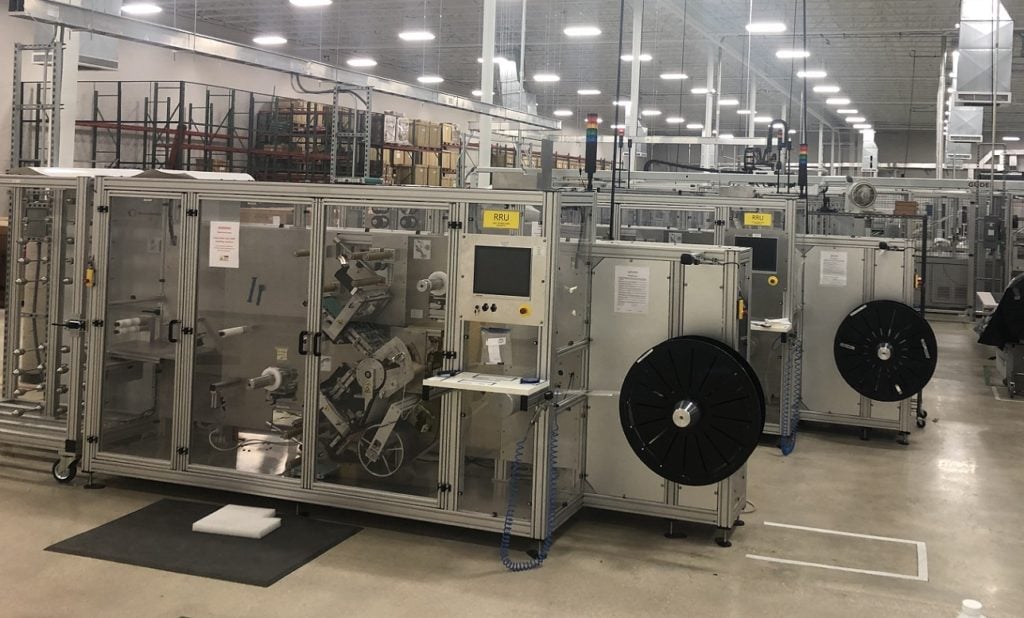
Renewable energy financier Excelsior Energy Capital has signed a 2GW solar module supply agreement with Canadian-headquartered solar manufacturer Heliene.
Excelsior said that most of the modules under the agreement will be produced at Heliene’s US production facility in Mountain Iron, Minnesota and its planned site in the Greater Minneapolis-St Paul area of the state. The company did not confirm the planned period for the supply deal.
Try Premium for just $1
- Full premium access for the first month at only $1
- Converts to an annual rate after 30 days unless cancelled
- Cancel anytime during the trial period
Premium Benefits
- Expert industry analysis and interviews
- Digital access to PV Tech Power journal
- Exclusive event discounts
Or get the full Premium subscription right away
Or continue reading this article for free
Heliene produces predominantly tunnel oxide passivated contact (TOPCon) modules in the US and will begin producing solar cells in 2025. The company announced an expansion to its Mountain Iron TOPCon production line in December 2023, doubling its capacity from 150MW to 300MW with a US$170 million investment. The Minneapolis facility is earmarked to be operational this year.
Chris Frantz, partner at Excelsior said that the supply deal “materially de-risks supply of PV modules for [Excelsior’s] projects and allows us to work collaboratively alongside an established industry player as they expand and innovate over time.”
In November 2023, Excelsior closed project financing for the mammoth 682MW Faraday solar project in Utah. The site, which is currently under construction, is due online in Q3 2025. Module supply for the project has not been disclosed.
Heliene is one of a number of US solar manufacturers riding the wave of expansion as the country looks to reshore its solar supply chain amid rising trade tensions with China. However, recent discussion around the Biden administration’s flagship policy – the US$369 billion Inflation Reduction Act (IRA) and its constituent tax credit schemes for American renewables – has begun to shift a little.
Announcements for new US-made solar module capacity have been frequent and numerous, but the IRA has recently drawn criticism from trade bodies and industry leaders for failing to fill the vacuum of production capacity for upstream components in the US.
Earlier this week, the Solar Energy Manufacturers for America (SEMA) coalition – a trade group of non-Chinese manufacturing companies active in the US across the solar supply chain – said that the White House should “act aggressively” to support US manufacturers against low-priced imports and facilitate incentives for upstream polysilicon, ingot, wafer and cell production.
Last month, CEO of US-based cadmium telluride thin-film solar manufacturer First Solar, Mark Widmar, made similar comments. In an address to a Senate Finance Committee, Widmar said that the US ran the risk of “lining China’s pockets with US taxpayer dollars” by allowing foreign solar manufacturers to set up module assembly plants in the US without the upstream feedstock to support a US-based ecosystem.
For its part, Heliene recently inked a deal with US-based solar cell producer Suniva to use the latter’s Georgia-made TOPCon cells to produce modules. These products are expected on the market in mid-2024.
Earlier this week, Excelsior Energy Capital backed the launch of a new independent power producer (IPP) in the US, Lydian Energy. The IPP will develop solar and battery energy storage system projects and has a current portfolio of 1.75GW between nine projects across Texas and New Mexico.






